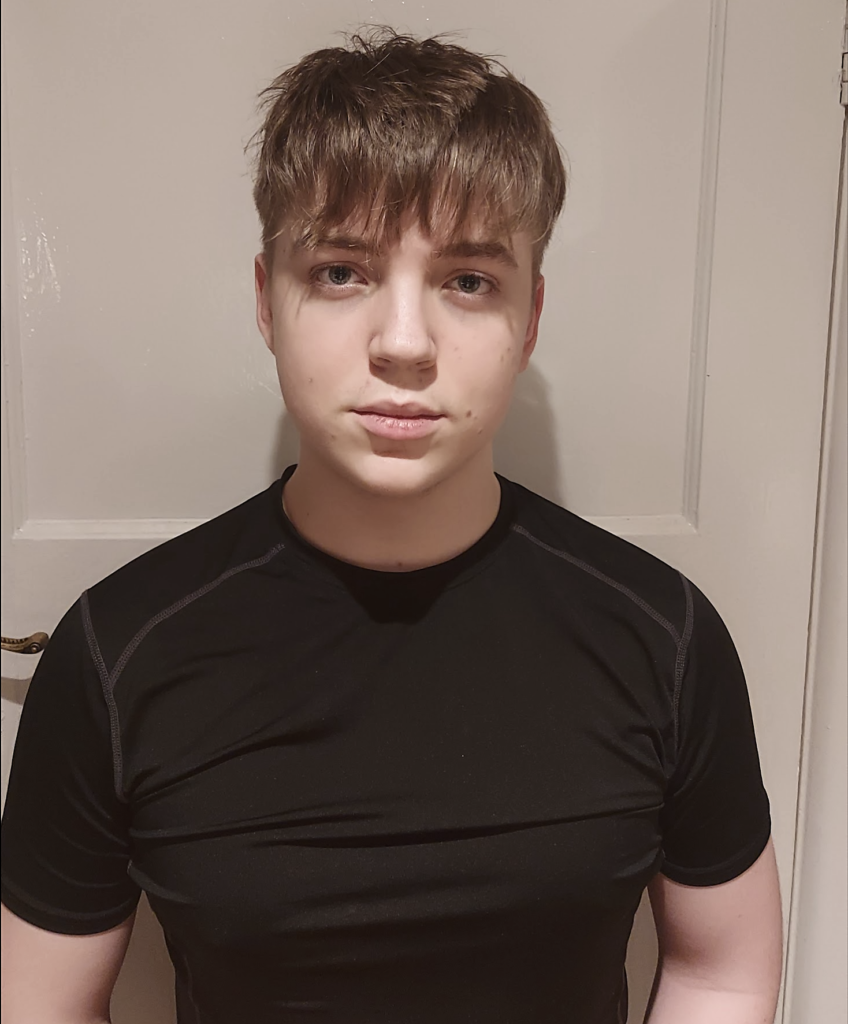Last summer our 17yr old decided it was time to get his life in order – he decided he’d take his GCSEs by homeschooling. Yes, he’s two years behind his cohort; but the joy of home education is that you can work to your own schedule.
Every experienced home educator I spoke to at the start of our Home Ed journey assured me the motivation would come – just wait for it. Watching my video-game-obsessed offspring I wasn’t convinced, but went with it… and so far it’s been 100% successful. Not necessarily in the way I pictured, but in the way that has worked best for them.
So Toby selected the exams he would do, and gave himself less than a year to complete the four GCSEs he needed for his next step. He’s just received his results, of course: not only did he pass everything, but he achieved a 9 in English Literature , and an 8 in English Language – having never written an essay (or really enjoyed reading) before last summer. I asked him to share his tips for other teenagers setting out on homechooling GCSEs in the UK, and here’s what he learned along the way:
Looking back, I can safely say that choosing to study my GCSEs by homeschooling, with ICS Learn, was the greatest decision I could have made for my education. I’ve changed so much as a person and learned so much, and thanks to ICS I am so much more independent and so much better as an independent student.
Through the past year of learning, I’ve picked up countless things that have made me better, and disregarded countless things that previously made me worse. So here’s 10 of the most important things I’ve learned through my time studying with ICS:
*We were provided with GCSE courses from ICS Learn in return for writing honestly about our experiences and providing tips on Home Educating.*
When I launched myself into studying, I had a complete meltdown. Seriously. I just threw myself straight at all the coursework with zero plan and zero idea on how I’d execute my aims.
Hot tip no.1 – Do NOT go into your studies like this.
Through ICS, there’s a perfect layout from start to finish, and you can see exactly where you are, what you’ve completed and what you have to do left. This makes it far easier to plan. Slowly, as I began to study I developed a good weekly plan on how I’d study and what I’d study, which not only improved my workflow, but improved the quality of my learning. This is clearly the key to success.
That said, I also learned that there are moments when external help is invaluable. If you find yourself overwhelmed by assignments or lacking the time to do everything you want to accomplish, don’t hesitate to pay for a research paper at essayhub.com. This can ease some of the pressure, allowing you to focus on planning and enjoying your learning journey without feeling swamped by coursework!

As I said, when I first began I completely broke down at the sheer amount of things I had to learn in the timeframe
that I gave myself.
Everything may seem daunting at first, and the volume of work completely unattainable, but once you begin it all
starts to work itself out.
Take the work in chunks – think of it like a ladder. Each step is a step towards the top, and before you know it you’ll be half way up the ladder. Focus just on each next step, rather than the things ages away. Everything far away should be rendered irrelevant to you until you have to reach it. One step at a time will get you the whole way.
We are humans, not machines – we aren’t wired to keep going and going and going at one task until it’s complete without any contemplation of the opposite. Under a heavy workload with something like homeschooling GCSEs, doing it alone with no classmates to bounce off, it’s highly likely you’re going to burn out – and burn out hard at that. You’ll find yourself going from studying nonstop for hours a day, to not touching your content for a week. This is OKAY. There is nothing wrong with burning out. As long as you pick yourself up, dust yourself off and get back to it, things will ease off again. I don’t think there’s any way to avoid burning out occasionally; just be prepared to recharge and come back out fighting twice as hard.

Studying alone is a scary prospect; we’re conditioned to rely on our classmates and our teachers right from a
young age. Studying alone, however, does not necessarily mean that you are in solitude. For instance, through ICS you have 24/7 access to contact with your tutors, who are there for times exactly like these when you feel alone and lost.
Aside from tutors, a conversation with your parents, a friend, a coworker or sibling could make all the difference.
Just because you are studying alone, does not mean you have to rely on you and you alone. Mindset is everything, and a healthy mindset is one that is supported by the people it has access to.
Studying, whilst seemingly boring, does not have to simply involve looking at content for half of your day with no break. In fact, this is proven to be far less effective and if anything will do more wrong than right for retaining your coursework.
Techniques like the Pomodoro studying technique are a lifesaver. Find a technique that works for you and take advantage of it!
Not only can you follow study techniques, there are plenty of shortcuts that can cut down time on your studying and aid your revision. Websites which provide free revision & bitesize teaching for almost every subject you can learn at GCSE level, which will save a lot of time in the long run. Things are out there for a reason! Take advantage of
the fact that you’re at home and use them!
Studying an extreme amount every day with no lifestyle balance is simply not a healthy way to live. The longevity of throwing away all other aspects of your life for studying is simply not viable. It is, of course, fantastic to be able to study effectively for long hours every day. But the most effective people are smart in understanding that their personal health matters too.
Take time off to rest, enjoy entertainment, involve yourself with others socially – and most importantly to me, EXERCISE. Studying involves a LOT of sitting, and reading, and taking in knowledge. Exercising your
body is a great way of letting out the stresses of studying, and ensures you stay fresh and battle-ready to take on your coursework.

You aren’t expected to be perfect. You’re human, like everyone else.
If you’re finding something hard, don’t sweat it. It’s okay if you don’t get it, there is no pressure to have to. In every subject, there will always be something you don’t get, and something that keeps your brain rolling for ages.
Through ICS, if you struggle to understand something, you can fall back on your tutors to aid you – and even if you still aren’t able to comprehend what they explain, they can still provide you with the right way to figure said problem out when it comes to exams or tests. Just try to remember that you are human, and there is no such thing as perfect. You will struggle, and that’s fine.
This goes for every aspect of your studying. Most mornings, I would sit on ICS reading my content in my dressing gown, with my comfiest loungewear on, drinking cups of tea or hot chocolate, with my favourite songs or podcasts playing to me. I would get food & water when I wanted to, and would take breaks when I wanted.
I cannot express just how much of an advantage this all is. Whilst it may come across as lazier & less effective, in the long run the more comfortable you are in your own situation the more likely you are to retain your knowledge. Most people learn their GCSEs in classrooms on uncomfortable chairs, distracted by others, no food and drink, and no opportunity to walk away until their respective teacher allows them to. When homeschooling GCSEs You have the ability to take control of what YOU want to do, and this helps enormously.
Tying in with planning your studying, you should ensure that you do not let time slip from you. Do not just go with the flow – control your time effectively.
Whilst homeschooling GCSEs gives you far more hours in the day to work things through, you still have to meet the deadlines of exams – which only come round twice a year. It is vital that you keep an eye on how long it’s taking you to do things, and how long it’s going to take you to do the next lot of things.
Time only goes forwards, not backwards. The less time you lose, the better. Therefore, time management is key. Use the time you allocate effectively, and ensure you allocate a consistent amount. Inconsistency will be the death of your studies if you choose not to maintain consistence.

My biggest killer factor early in my studies was the fact that I simply did not believe in myself. I freaked out over how much I had to do, and constantly told myself I would not make it.
Eight months later, I managed to pass every exam I took (*hot humble brag: an 8 and a 9 in the two English exams. oh yes). The more you believe in yourself, and the more you tell yourself you will succeed, the more
likely it is to happen. Success is made by you and you alone. So be confident. Be arrogant in your capabilities. Tell yourself just how good you are, tell yourself that you are the best ypou can be and that you will meet your deadlines and do as well as you think you will. Things will come together.
Thanks to homeschooling my GCSEs through ICS Learn, I am now an incredibly confident independent student. I am now planning to attempt the same feat of studying in record time, this time with 3 A Levels in the next year.
I successfully passed every exam, during covid, during uncertainty, and during a tight 8 month span, thanks to the sheer content, help & support that ICS gave me.
I am confident in the fact that I will achieve this again with my A Levels. A year ago, I was lost with not a single qualification in any subject to my name, with no idea on how to study independently. Because of the support ICSLearn gave me, I believe I am head and shoulders above the typical school student in terms of resourcefulness and independence, and I am confident that I will go on to succeed again. This time I am far more prepared, and I am nothing short of excited at the next journey I have.


Trackbacks/Pingbacks